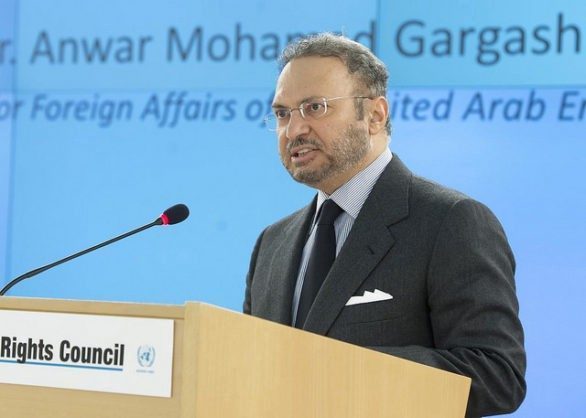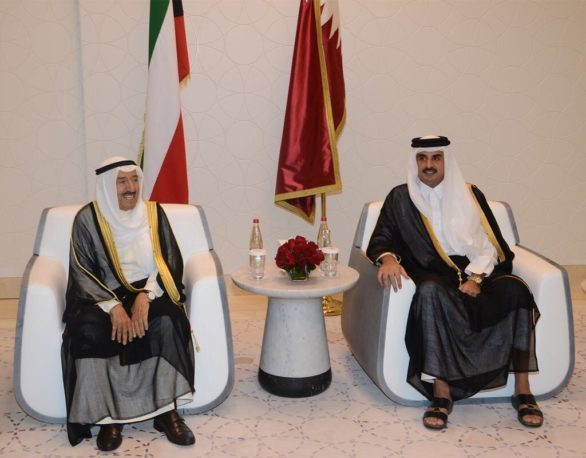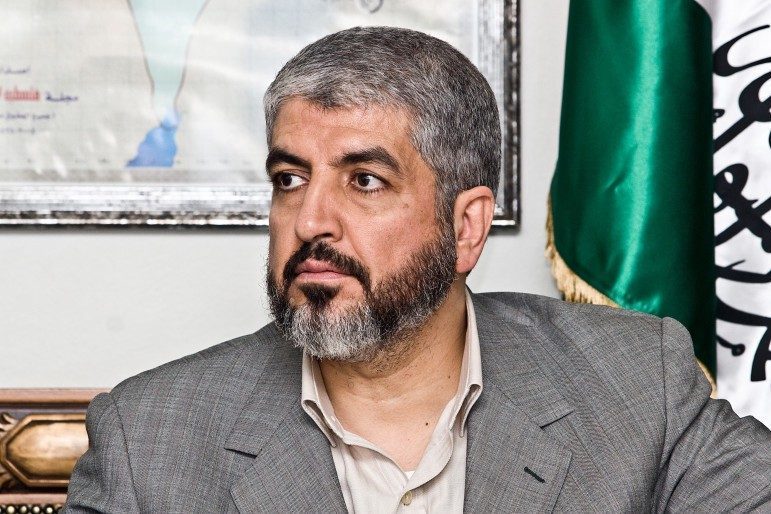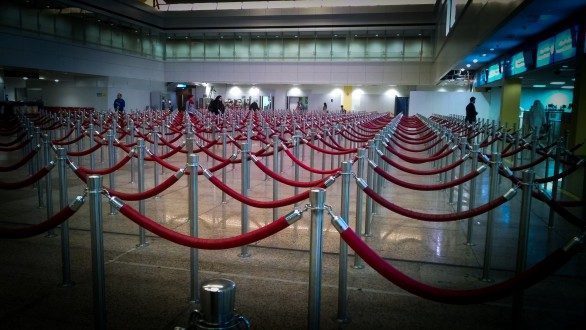By Doha News Team

A senior figure in the Emirati government said his country has “nothing to negotiate” with Qatar and may impose further sanctions on the country.
Anwar Gargash, the UAE’s minister of state for foreign affairs, made the bullish statements in a series of interviews with several international news wires this week.
They came as Kuwait’s Emir Sheikh Sabah Al Ahmad Al Sabah held a series of meetings with leaders in Qatar. He also visited the UAE and Saudi Arabia to mediate the dispute, which erupted on Monday.

Speaking to the Associated Press (AP) in Dubai, Gargash said Qatar had “chosen to ride the tiger of extremism and terrorism” and now needed to pay the price.
Qatar’s response
Qatar has repeatedly denied links to terrorism.
In an interview earlier this week with CNN, foreign minister Sheikh Mohammed bin Abdulrahman Al Thani said Qatar “combats terrorism financing and helps protect the world against potential terrorists.”
He also stressed the country’s desire to resolve the rift through dialogue with its neighbors.
Also on CNN this week, Meshal Hamad Al Thani, Qatar’s ambassador to the United States, described stories about Qatar financing terrorism as “fabricated.”
Allegations of Qatar's link to terror financing are based on misinformation, which we are actively pushing to correct
— Meshal Hamad AlThani (@Amb_AlThani) June 7, 2017
UAE demands
However, the Emirati Foreign Minister pushed back against the defense, saying Qatar’s “fingerprints are all over the place” when it comes to terror funding.
“Enough is enough,” AP quoted Gargash as saying.
The official also explained what Saudi Arabia, Bahrain and the UAE want Qatar to do to resolve the Gulf dispute.

Demands include “definitely” expelling members of Hamas and the Muslim Brotherhood, and ceasing support for groups “with Al Qaeda DNA” around the world.
Another issue that must be addressed is Qatar’s media empire, particularly broadcaster Al Jazeera, he said.
Qatar ‘in denial’
In a separate interview with Bloomberg, Gargash accused Qatar of being “in denial” over its alleged funding of extremists.
He also clarified that the UAE is not seeking a regime change in Qatar, but rather a change in policy.
“For us, this (extremist funding is) a critical issue and there is no turning back to the status quo.
There has to be first a very clear political indication, whether it’s to the mediator, whether it’s to the GCC countries, that Qatar is changing course. You start with that. You can’t start mediation when Qatar is in denial and I think right now we are in a phase where Qatar is in denial.”
In other interviews, Gargash warned Qatar that further economic sanctions could be used against it, in the form of embargoes.
Meanwhile, Bahrain’s foreign minister Sheikh Khalid bin Ahmed Al Khalifa reportedly told Mecca newspaper that while he appreciated Kuwait’s efforts to mediate the dispute, it would consider “any options to protect ourselves from Qatar.”
Jail for sympathetic tweets
The interviews all took place in the UAE, which yesterday announced draconian punishments of up to 15 years in jail against people who publish expressions of sympathy with Qatar.

The Emirates’ Attorney General Hamad Saif al-Shamsi said such messages on social media, “or any type of written, visual or verbal form,” would be considered a cyber crime punishable by law.
Bahrain passed similar legislation yesterday. Qatar countered by urging residents to be restrained and respectful in their online remarks.
“The right of Qatari citizens and residents to express their opinions is always guaranteed, however keeping in mind the Islamic and cultural values that has been bestowed on us,” authorities said.
Visitor visas
Saudi, Bahrain and the UAE have already prohibited Qataris from transiting through or entering their nations.
In an additional inconvenience, the UAE is also making it harder for Qatar’s expats to visit the country.

Those who have Qatar Residence Permit (RP) will no longer automatically be granted visas on arrival, WAM said this week.
“This ruling applies to all airlines flying into the UAE,” the statement added.
However, the British Embassy in Doha clarified that UK passport holders could still get a visa on arrival in the UAE.
This suggests that passport holders from certain countries should still be allowed into the Emirates without having to apply for a visa in advance.
Mail delivery suspension
In one more bid to put pressure on Qatar, the UAE announced yesterday that it would stop all mail delivery to the nation.

WAM reported that Emirates Post Group has suspended postal services to Qatar until further notice.
“The EPG also advised all customers that apart from temporarily stopping the delivery of mail items to the State of Qatar, all as yet undelivered items will be returned with the corresponding postal fees according to procedures and regulations,” it added.
Thoughts?






